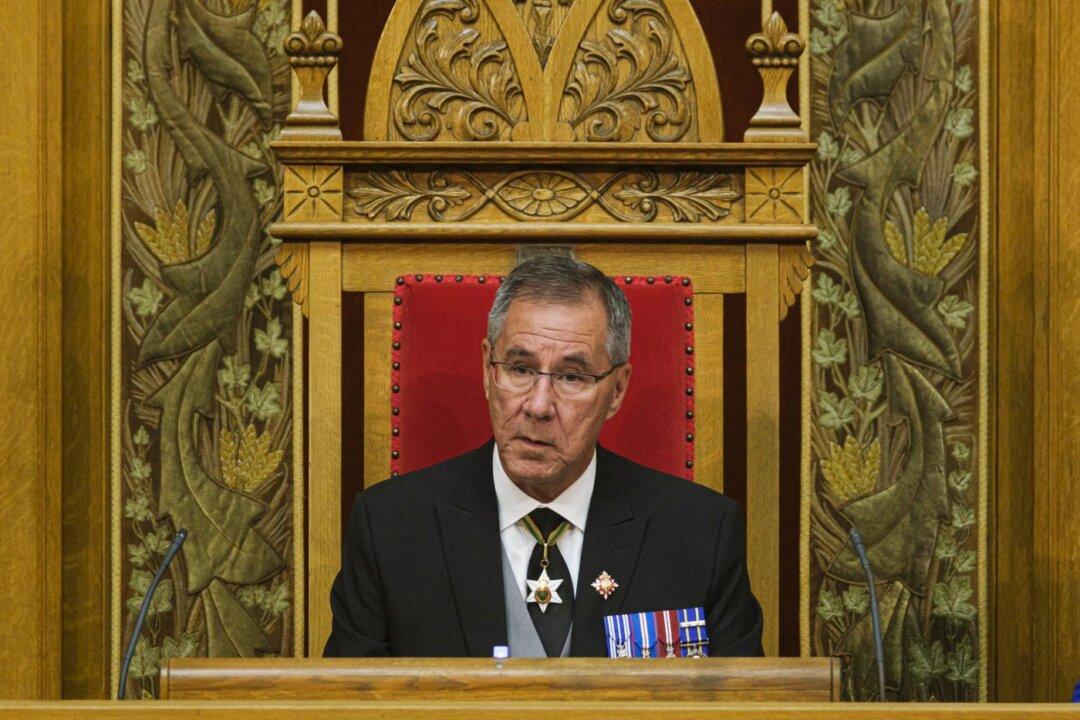
Saskatchewan Lt.-Gov. Russ Mirasty reads the throne speech at the legislature in Regina on Oct. 27, 2021. The Canadian Press/Michael Bell
Premier Scott Moe has his eyes set on flexing Saskatchewan’s autonomy with legislation akin to Alberta’s proposed sovereignty act.
Lt.-Gov. Russell Mirastry, in the throne speech, has laid out the Saskatchewan Party government’s agenda for the fall session of the legislature.





